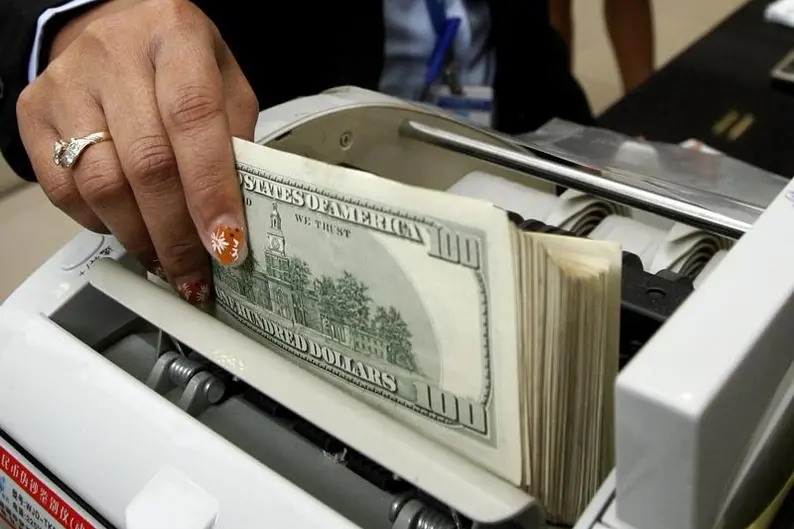PHOTO
07 May 2016
Doha - The GCC governments are expected to raise between $255bn-$390bn cumulatively through 2020 by issuance of local and international debts/bonds. A flurry of activity in fixed income space is expected to present investors with widespread opportunities in the region going forward.
Persisting low oil prices has exerted tremendous pressure on government finances. Between 2015 and 2016, the GCC countries are expected to post a fiscal deficit of $318bn, Mena market Intelligence Marmore said in its latest "GCC Sovereign Debt Forecast" Webinar.
The GCC banks, though well capitalized, may not act as the sole source of funding avenue. Lack of clarity regarding debt management policies has caused widespread speculation.
With Brent crude dropping by 70 percent since the high reached in June 2014, Qatar announced its first deficit budget in 15 years. Saudi Arabia declared $99bn deficit for 2015, followed by an estimated $88bn in 2016. This is in addition to the massive spending cut announced across the GCC.
However, Qatar, the UAE and Kuwait have substantial reserves to tide over the problem. Three-month interbank rates have risen sharply in recent months. Higher growth, capital protection and low debt to GDP ratio are unique features of bond markets in GCC. Pegged currency helps to avoid currency risk, Marmore analysts said. Bloomberg reported on Wednesday that Qatar will seek to raise up to $5bn from a planned bond sale as early as this month.
HSBC Holdings Plc, Deutsche Bank AG, Barclays Plc, Bank of America Corp. and Bank of Tokyo Mitsubishi UFJ are among lenders that will help arrange the sale. The issue will probably be in multiple tranches, the report said quoting anonymous sources.
The Qatari sale would be its first since 2011 and follows neighbouring Abu Dhabi, which last week raised $5bn from the sale of five and 10 year securities. Qatar carries the third-highest investment grade rating from Standard & Poor's.
Governments in the six-nation Gulf Cooperation Council, which includes the two biggest Arab economies of Saudi Arabia and the United Arab Emirates, are turning to public markets to raise funds after a more than halving of oil prices led to higher budget deficits. Qatar expects to post a budget deficit of QR 46.5bn ($13bn) this year and will probably bridge the shortfall by selling local and international debt.
S&P Global changed its outlook on three Qatari banks to negative amid the decline in energy prices and a slowing economy, according to a May note from the ratings firm. Banks' lending books will be pressured by increasing credit losses and weakening earnings generation, it said.
"The sharp fall in oil prices over the past year and a half has dented Qatar's economic growth prospects as well as its wealth levels," S&P Global said.
The yield on the Qatar government's 2022 bond climbed the most in 10 days, rising 2 basis points to 2.498 percent on Wednesday at 2:52 p.m. in Doha, according to data compiled by Bloomberg. The yield on its 2030 security was up 1 basis point.
Doha - The GCC governments are expected to raise between $255bn-$390bn cumulatively through 2020 by issuance of local and international debts/bonds. A flurry of activity in fixed income space is expected to present investors with widespread opportunities in the region going forward.
Persisting low oil prices has exerted tremendous pressure on government finances. Between 2015 and 2016, the GCC countries are expected to post a fiscal deficit of $318bn, Mena market Intelligence Marmore said in its latest "GCC Sovereign Debt Forecast" Webinar.
The GCC banks, though well capitalized, may not act as the sole source of funding avenue. Lack of clarity regarding debt management policies has caused widespread speculation.
With Brent crude dropping by 70 percent since the high reached in June 2014, Qatar announced its first deficit budget in 15 years. Saudi Arabia declared $99bn deficit for 2015, followed by an estimated $88bn in 2016. This is in addition to the massive spending cut announced across the GCC.
However, Qatar, the UAE and Kuwait have substantial reserves to tide over the problem. Three-month interbank rates have risen sharply in recent months. Higher growth, capital protection and low debt to GDP ratio are unique features of bond markets in GCC. Pegged currency helps to avoid currency risk, Marmore analysts said. Bloomberg reported on Wednesday that Qatar will seek to raise up to $5bn from a planned bond sale as early as this month.
HSBC Holdings Plc, Deutsche Bank AG, Barclays Plc, Bank of America Corp. and Bank of Tokyo Mitsubishi UFJ are among lenders that will help arrange the sale. The issue will probably be in multiple tranches, the report said quoting anonymous sources.
The Qatari sale would be its first since 2011 and follows neighbouring Abu Dhabi, which last week raised $5bn from the sale of five and 10 year securities. Qatar carries the third-highest investment grade rating from Standard & Poor's.
Governments in the six-nation Gulf Cooperation Council, which includes the two biggest Arab economies of Saudi Arabia and the United Arab Emirates, are turning to public markets to raise funds after a more than halving of oil prices led to higher budget deficits. Qatar expects to post a budget deficit of QR 46.5bn ($13bn) this year and will probably bridge the shortfall by selling local and international debt.
S&P Global changed its outlook on three Qatari banks to negative amid the decline in energy prices and a slowing economy, according to a May note from the ratings firm. Banks' lending books will be pressured by increasing credit losses and weakening earnings generation, it said.
"The sharp fall in oil prices over the past year and a half has dented Qatar's economic growth prospects as well as its wealth levels," S&P Global said.
The yield on the Qatar government's 2022 bond climbed the most in 10 days, rising 2 basis points to 2.498 percent on Wednesday at 2:52 p.m. in Doha, according to data compiled by Bloomberg. The yield on its 2030 security was up 1 basis point.
© The Peninsula 2016





















